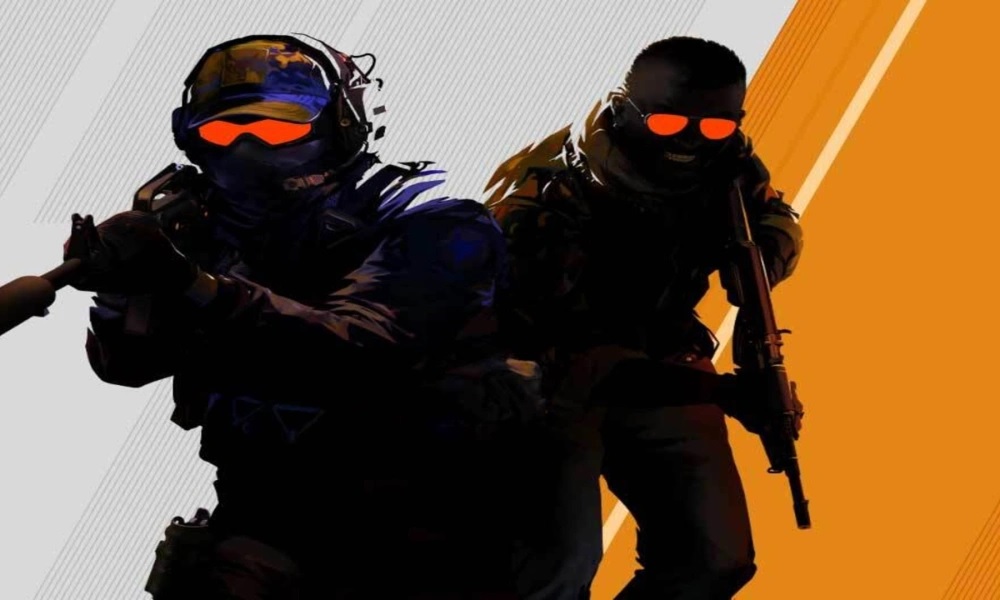Introduction:
As esports continue to gain popularity and recognition, it is becoming increasingly clear that competitive gaming requires much more than just quick reflexes and accurate aim. In fact, psychological factors play a significant role in determining success or failure in games like Counter-Strike: Global Offensive (CS:GO). A psychological approach to CS:GO involves examining the cognitive biases that can affect decision-making during gameplay, as well as the role of perception in shaping how players interpret and react to information.
Cognitive biases are unconscious thought patterns that can influence how people perceive and process information. In the context of CS:GO, these biases can lead players to make decisions based on incomplete or inaccurate information, resulting in poor performance or missed opportunities. For example, confirmation bias may cause a player to ignore evidence that contradicts their preconceived notions about an opponent’s strategy. Similarly, anchoring bias may cause a player to become overly fixated on one aspect of the game while ignoring other important factors.
Perception also plays a crucial role in CS:GO gameplay. How players perceive their surroundings can impact their ability to anticipate enemy movements and make split-second decisions. For instance, selective attention may cause a player to focus too much on one area of the map while neglecting other areas where enemies could be lurking. Additionally, visual illusions can create false perceptions that lead players astray.
By understanding these psychological factors at play in CS:GO gameplay, we can gain insights into how players think and behave during matches. This knowledge could ultimately help us develop strategies for improving performance both individually and as teams.
Cognitive Biases In Competitive Play:
In competitive play, it is not uncommon for players to fall victim to cognitive biases that can ultimately impact their performance. One such bias is the “anchoring effect,” where players rely too heavily on the first piece of information they receive, often leading them to make decisions that are not entirely rational or logical. This can be particularly detrimental in CS:GO, where split-second decisions can mean the difference between victory and defeat. Another cognitive bias commonly observed in competitive play is confirmation bias, where players tend to seek out information that confirms their pre-existing beliefs and ignore evidence that contradicts them. In CS:GO, this bias can manifest itself in a number of ways, such as a player becoming fixated on a particular strategy or approach without considering alternative options.
Furthermore, the “sunk cost fallacy” is another cognitive bias that can affect players’ decision-making abilities during gameplay. This refers to the tendency for individuals to continue investing time and resources into an endeavor simply because they have already invested so much into it previously. In CS:GO, this could manifest as a player continuing to stick with a particular weapon or strategy even if it’s no longer effective simply because they’ve invested so much time into mastering it.
Finally, there’s the “overconfidence effect,” which occurs when individuals overestimate their abilities and underestimate those of their opponents. In CS:GO, this could lead players to take unnecessary risks or make poor decisions based on an inflated sense of confidence in their skills.
Overall, understanding these cognitive biases and how they relate to competitive play is essential for any serious CS:GO player looking to improve their gameplay and overall performance. By recognizing these tendencies within themselves and others on their team, players can work towards mitigating them and making more informed decisions during gameplay – ultimately leading to greater success on the battlefield!
The Role Of Perception In Gameplay:
Perception plays a vital role in the gameplay of any competitive game, and Counter-Strike: Global Offensive (CS:GO) is no exception. The way players perceive their surroundings and opponents can greatly affect their performance in the game. In CS:GO, players must rely on their visual and auditory senses to gather information about the game environment and make decisions accordingly. However, perception can be influenced by various factors such as individual differences in attentional focus, experience with the game, and cognitive biases.
One aspect of perception that affects CS:GO gameplay is attentional focus. Players who are highly focused on a particular aspect of the game may miss critical information that could aid them in making strategic decisions. For instance, a player who is too focused on aiming at an opponent may not notice another opponent approaching from behind. On the other hand, players who have a broader attentional focus are likely to pick up more information that could help them make better decisions.
Another factor that influences perception in CS:GO is experience with the game. Experienced players tend to have more refined perceptual skills than novice players. They can quickly identify patterns in their opponents’ behavior and anticipate their moves based on past experiences. Additionally, experienced players are more likely to pay attention to subtle cues such as footsteps or gunshots that indicate an opponent’s location.
Cognitive biases are also known to influence perception in CS:GO gameplay. These biases can lead to errors in decision-making or cause players to perceive things differently than they actually are. For example, confirmation bias could cause a player to believe they have found evidence supporting their strategy when it may not be valid.
Perception plays an essential role in determining success or failure in CS:GO gameplay as it affects how players gather information about their environment and opponents. Attentional focus, experience with the game, and cognitive biases are some of the factors influencing perception in this competitive video-game arena. Therefore, players must develop their perceptual skills to achieve optimal performance in CS:GO.
Conclusion:
In conclusion, the game of CS:GO is not just a simple shooter game but a complex environment that requires cognitive and psychological skills to succeed. The cognitive biases that players face during competitive play can have a significant impact on their decision-making process, leading to suboptimal outcomes. It is essential for players to be aware of these biases and work on overcoming them to improve their performance.
Moreover, perception plays a crucial role in gameplay as it influences how players interpret information from their surroundings. A player’s ability to accurately perceive the game environment can give them an advantage over their opponents. Therefore, it is vital for players to develop their perception skills by paying attention to details and understanding how they affect gameplay.
Overall, taking a psychological approach to CS:GO can help players improve their performance and enhance their gaming experience. By understanding the cognitive biases that affect decision-making and improving perception skills, players can gain an advantage over their opponents. It is important for gamers who want to excel at CS:GO or any other competitive game to recognize that there are many psychological factors involved in gameplay beyond just hand-eye coordination or reaction time. By paying attention to these factors, they can elevate themselves above average players and become true champions in the virtual world of gaming. Learn more at csgo book.



